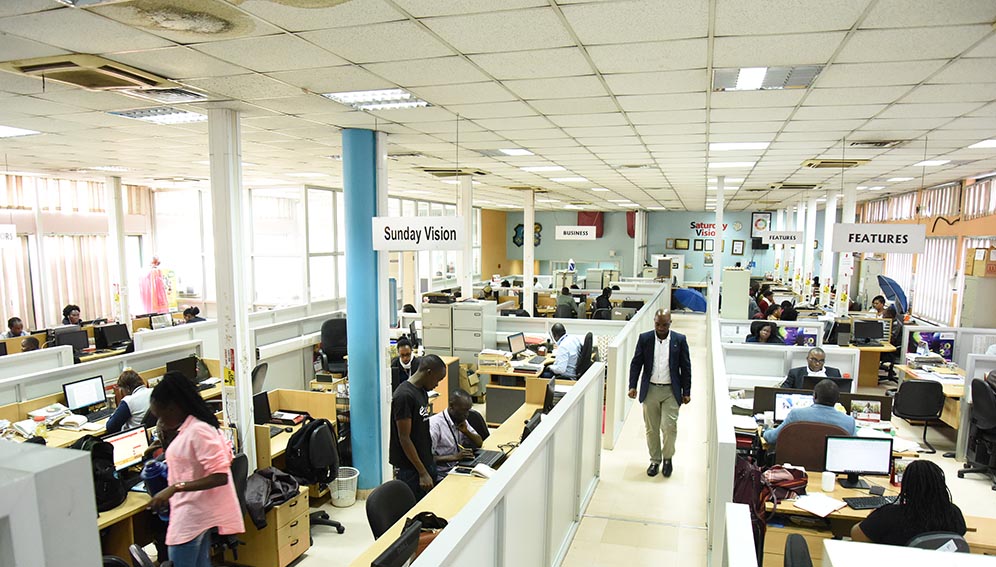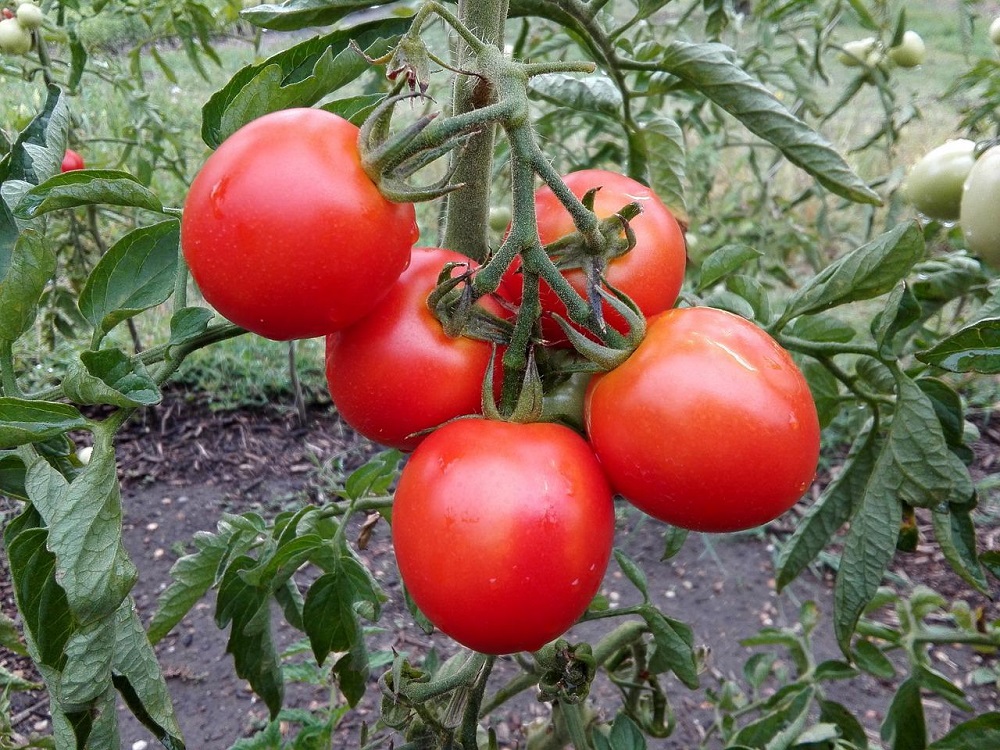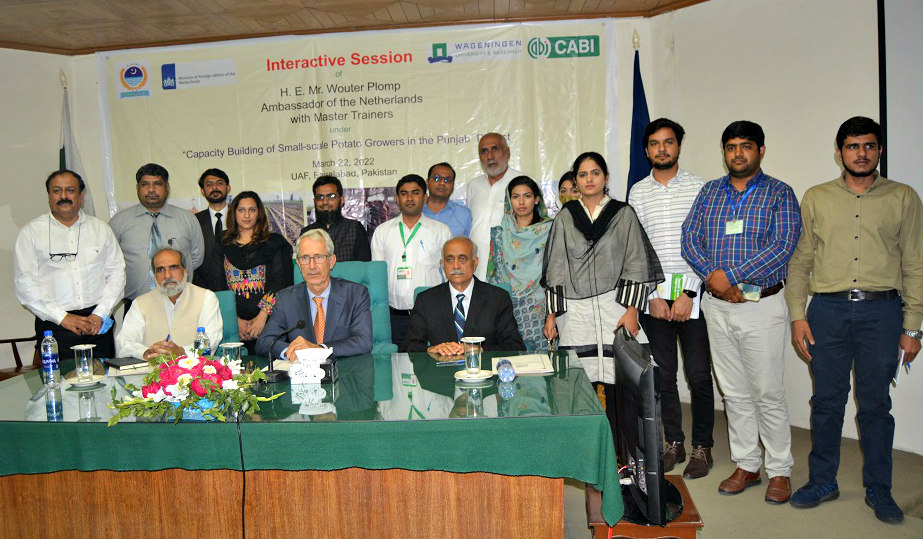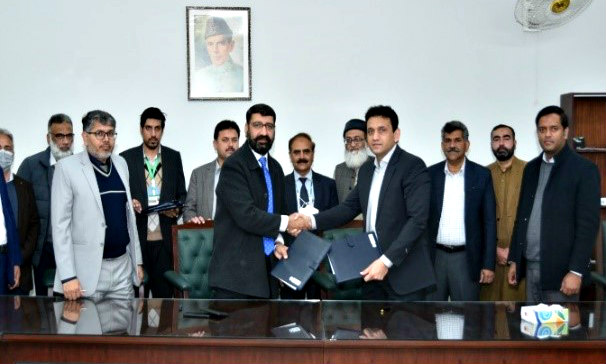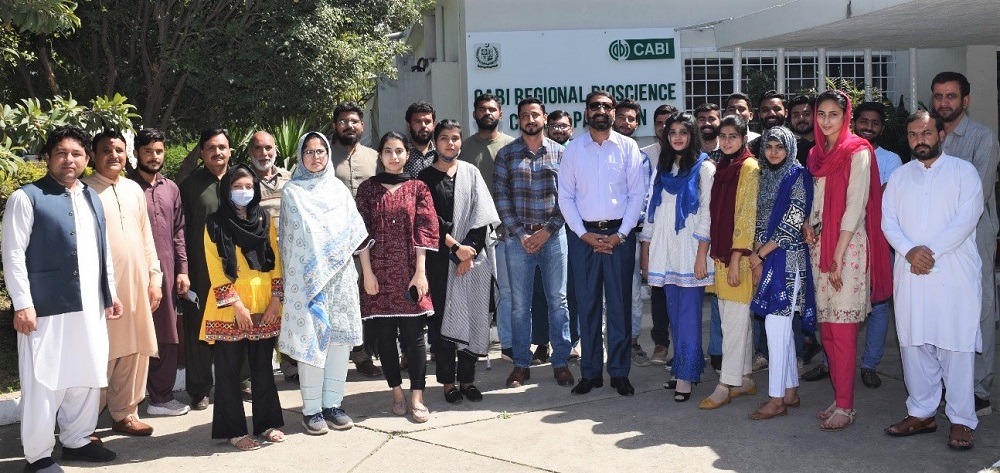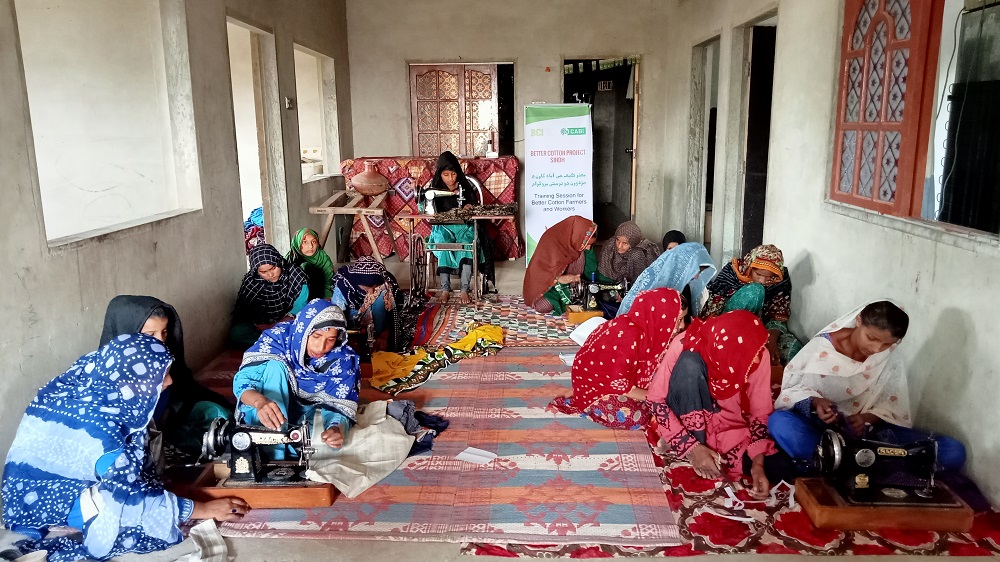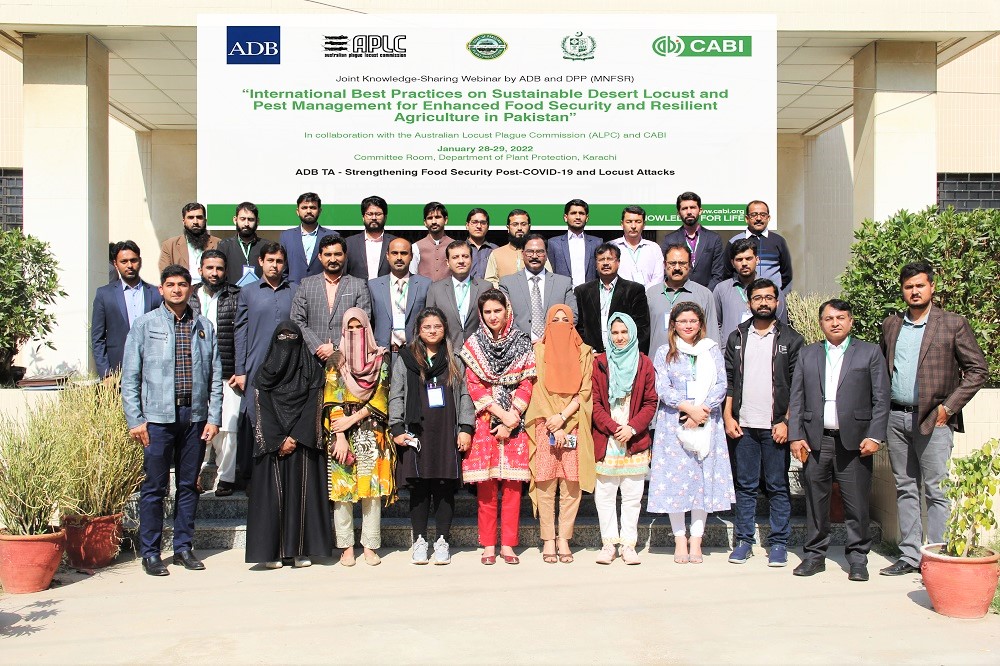CABI Blog
You are here: CABI Blog
Launching a career in science journalism
May 30, 2022
Charles Wendo
No Comments
What next after science journalism training? How does a new science journalist hit the road running? How can they earn a living in science journalism? How can they find the media outlets to publish their science stories? How can they get compelling story ideas and successfully pitch them to editors?
CABI contributes to infographic revealing impacts of COVID-19 on farm households in Pakistan
May 25, 2022
Wayne Coles
No Comments
CABI has contributed to new research findings in an infographic from the Asian Development Bank (ADB) which reveals the continuing impacts of the COVID-19 pandemic on farm households in Pakistan.
Dutch ambassador to Pakistan receives update on country’s potato capacity building project
May 23, 2022
Ijaz Ashraf, Maila al Saba Shah, Yasar Saleem Khan
No Comments
His Excellency Wouter Plomp, Ambassador of the Embassy of the Kingdom of the Netherlands to Pakistan, has received an update on the CABI-led project which aims to build the capacity of 950 smallholder potato growers in the Punjab region.
International Day for Biological Diversity: the rising threat of invasive species
May 20, 2022
Wayne Coles
No Comments
On Sunday 22 May 2022 the world celebrates International Day for Biological Diversity – a day in which the global community is called to re-examine our relationship to the natural world.
CABI extends collaboration to mitigate harmful aflatoxins in red chilies
May 16, 2022
Babar Bajwa, Sabyan Faris Honey
No Comments
CABI in Pakistan has joined forces with the Pakistan Agricultural Research Council (PARC) and Ministry of National Food Security and Research (MNFS&R) to further research into a biological control to mitigate aflatoxins in red chilies.
CABI in Pakistan welcomes students from country’s leading agricultural universities for internship opportunity
April 19, 2022
Saqib Ali, Umair Safdar
2 comments
CABI in Pakistan has welcomed Bachelor’s and Master’s degree students from the country’s leading agricultural universities as part of an internship programme which provides the opportunity to sample projects and activities at the regional centre in Rawalpindi.
Project to investigate the microbial diseases of St Helena’s crop plants takes root
March 14, 2022
Phil Taylor, Rob Reeder
No Comments
St Helena is famous for its unique habitats from the lush endemic cloud forests on the peaks to the dry and rocky coastal fringes. Many of the islands plants and invertebrates are found nowhere else on earth and their populations and diversity have been studied extensively since scientists arrived in the 1800s. However, despite this…
Taking steps towards female empowerment through Better Cotton Initiative in Pakistan
March 8, 2022
Noor Nabi Bhutto
2 comments
CABI’s centre in Pakistan is dedicated to helping improve the empowerment of female cotton farm workers as part of its remit under the Better Cotton Initiative (BCI) which is tasked with trying to avert annual cotton crop losses of around $350m.
Doctor turned science journalist launches first newspaper of its kind
March 8, 2022
Wayne Coles
1 comment
Meet Syriacus Buguzi – a pioneering medical doctor turned science journalist from Tanzania. He is making the headlines after spawning the first Swahili language science and technology newspaper, MwanaSayansi.
High-level webinar addresses challenge of desert locust and food security in Pakistan
February 22, 2022
Amir H Malik, Kazam Ali, Muhammad Tariq Khan
No Comments
A high-level two-day joint-knowledge sharing webinar has been held at the Department of Plant Protection (DPP) in Karachi, Pakistan, to address international best practices and sustainable ways of fighting desert locust and other crop pests to help ensure the country’s food security.
Subscribe to blog
DISCLAIMER
Views expressed in contributions do not necessarily reflect official CABI positions.
Archives
Categories
- Agriculture and International Development
- Veterinary and Animal Sciences
- Climate change and biodiversity
- Publishing
- Value chains and trade
- Crop health
- Environmental Sciences
- Human Sciences
- Tourism, Hospitality and Leisure
- Food and nutrition security
- Plant Sciences
- Gender and youth
- Digital development
- Development communication and extension
- Economic development
- Invasive species
- CABI Bioservices
- One Health


